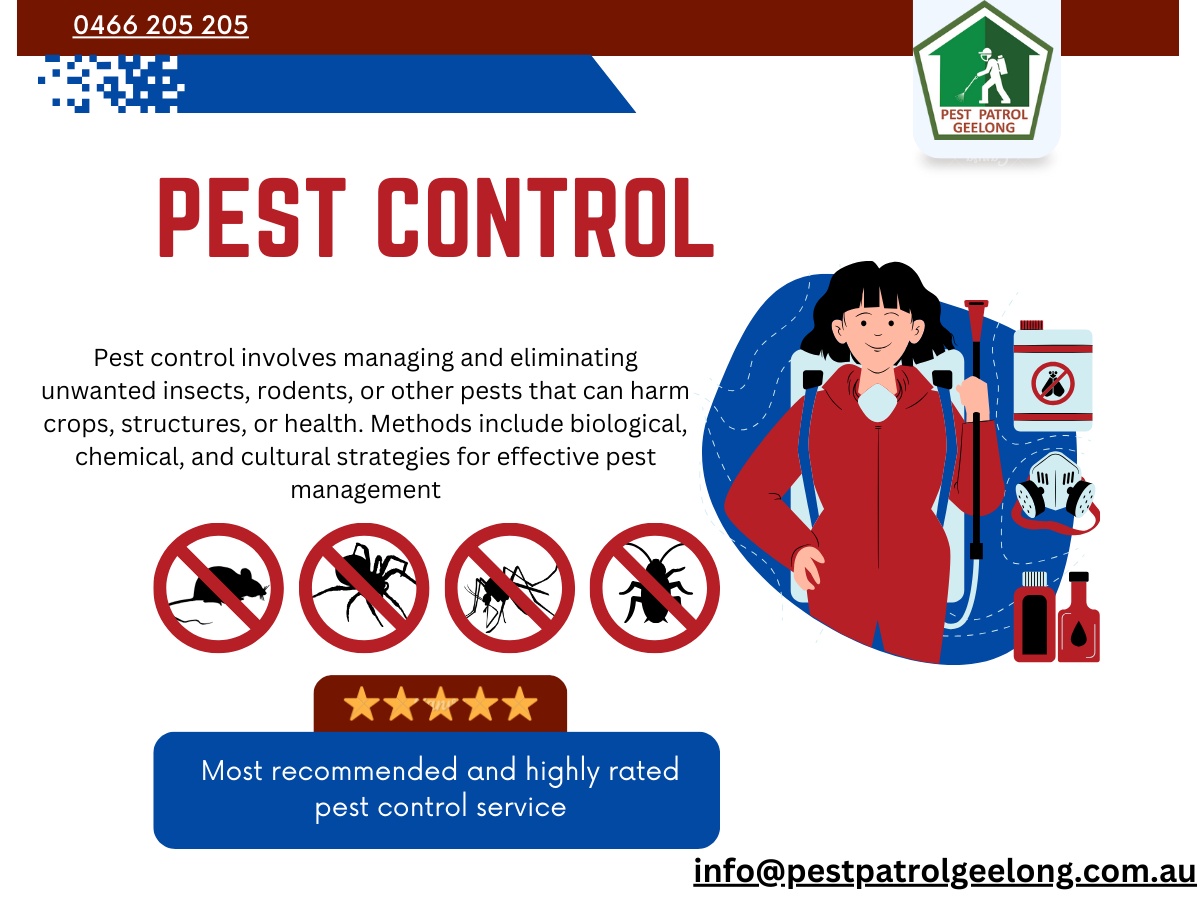Among the most frequent and dangerous pests that may invade houses are rats, which can lead to a variety of problems, including health hazards and property damage. Keeping a safe and healthy living environment requires effective rat pest management. This article will discuss the effects of rats on homes, the value of rat pest Control management, rat control techniques, and preventative measures that homeowners may do to avoid rat infestations.
Understanding the Impact of Rat Infestations
Rats can have a profound impact on homes, affecting both the structure of the building and the well-being of its occupants. Here are some key areas where rat infestations can cause problems
Structural Damage: Rats are notorious for their nibbling habits, which can cause harm to a home's numerous components. They could destroy timber buildings, insulation, and plumbing, or they might gnaw on electrical lines and start a fire.
Contamination: The droppings, urine, and saliva of rats can transmit illnesses. Rats can spread leptospirosis, salmonellosis, hantavirus, and rat-bite fever, among other diseases. Their existence can seriously endanger both people's and animals' health.
Food Contamination: Rats are omnivores that consume a variety of foods, including food that has been kept in the pantry. Foodborne infections and financial losses as a result of food spoiling can result from contaminated food.
Rats are nocturnal animals that are frequently active at night. Their squeaking, chewing, and scuttling sounds may be rather bothersome. For homeowners, their presence might be stressful and cause sleep disturbances.
Rats breed quickly, with females having the capacity to give birth to many litters year, contributing to the population growth. If left untreated, a small rat problem can soon grow into a major infestation.
The Importance of Rat Pest Control
Given the potential consequences of rat infestations, effective pest control is essential. Here's why rat pest control should be a priority for homeowners:
Health Risks: Rats can directly infect humans with a variety of illnesses, or they can contaminate food and water supplies. Reducing the number of rats in the population lowers the health hazards brought on by these illnesses.
Protection of Property: Insulation, wiring, and plumbing are just a few of the major structural damages that rats may bring about to a house. Quick action against pests can save expensive repairs and structural problems.
Preventing Reproduction: By taking early action, one may stop big colonies of rats from growing inside of a house. Pest management techniques that manage rat populations lessen the chance of widespread infestations.
Peace of Mind: Rats may be a difficult and unnerving household to live with. Rats may be eradicated with efficient pest management, giving homeowners peace of mind and the ability to feel at ease in their homes again.
Methods of Rat Pest Control
Professional Rat pest control services employ various methods to control and eliminate rat infestations. The choice of method depends on the severity of the infestation and the specific circumstances of the home. Common rat control methods include:
Exclusion: To stop rats from entering the house, locate and seal any access spots. This might entail fixing broken screens, adding door sweeps, and caulking wall gaps.
Trapping: Taking out rodents from the house by using traps. Trapping may be a humane and efficient way to control an infestation by focusing on certain regions.
Baiting is the strategic use of rodenticides (rat poisons) to get rid of rats. To guarantee safety and efficacy, this procedure should only be used by specialists with the necessary training.
Sanitation: Eliminating any sources of water and food that rats may find appealing. Rats may be discouraged by storing food in sealed containers, wiping up spills right away, and keeping everything clean.
Steps Homeowners Can Take to Prevent Rat Infestations
In addition to professional pest control services, homeowners can take proactive steps to prevent rat infestations and minimize the risk of rat-related problems:
cover Entry Points: Look for possible opportunities for rats to enter the house from the exterior and cover any gaps, crevices, or holes.
Remove Food Sources: Don't leave pet food outside overnight, wipe up spills right away, and store food in airtight containers. Keep trash cans properly closed and dispose of waste on a regular basis.
Preserve Cleanliness: Make sure your house is tidy and free of clutter. Maintain a clean kitchen area on a regular basis, clear the yard of waste, and prune overgrown plants that might serve as rat hiding spots.
Keep an eye out for Infestation Signs: Rat activity can be indicated by droppings, gnaw marks, and odd noises. Prompt intervention is made possible by early detection.
In summary
For households, rat infestations can have detrimental effects that range from health hazards to property damage. Protecting dwellings and guaranteeing the security and welfare of occupants requires an understanding of the effects of rats on buildings, an appreciation of the significance of Rat pest Control management, and the implementation of efficient control methods. Homeowners may protect their properties and live in a pest-free environment by being proactive in preventing rat infestations and hiring professionals for pest control services when necessary. Recall that taking action early on is essential to avoiding minor rat infestations from growing into more complicated and widespread infestations.


No comments yet